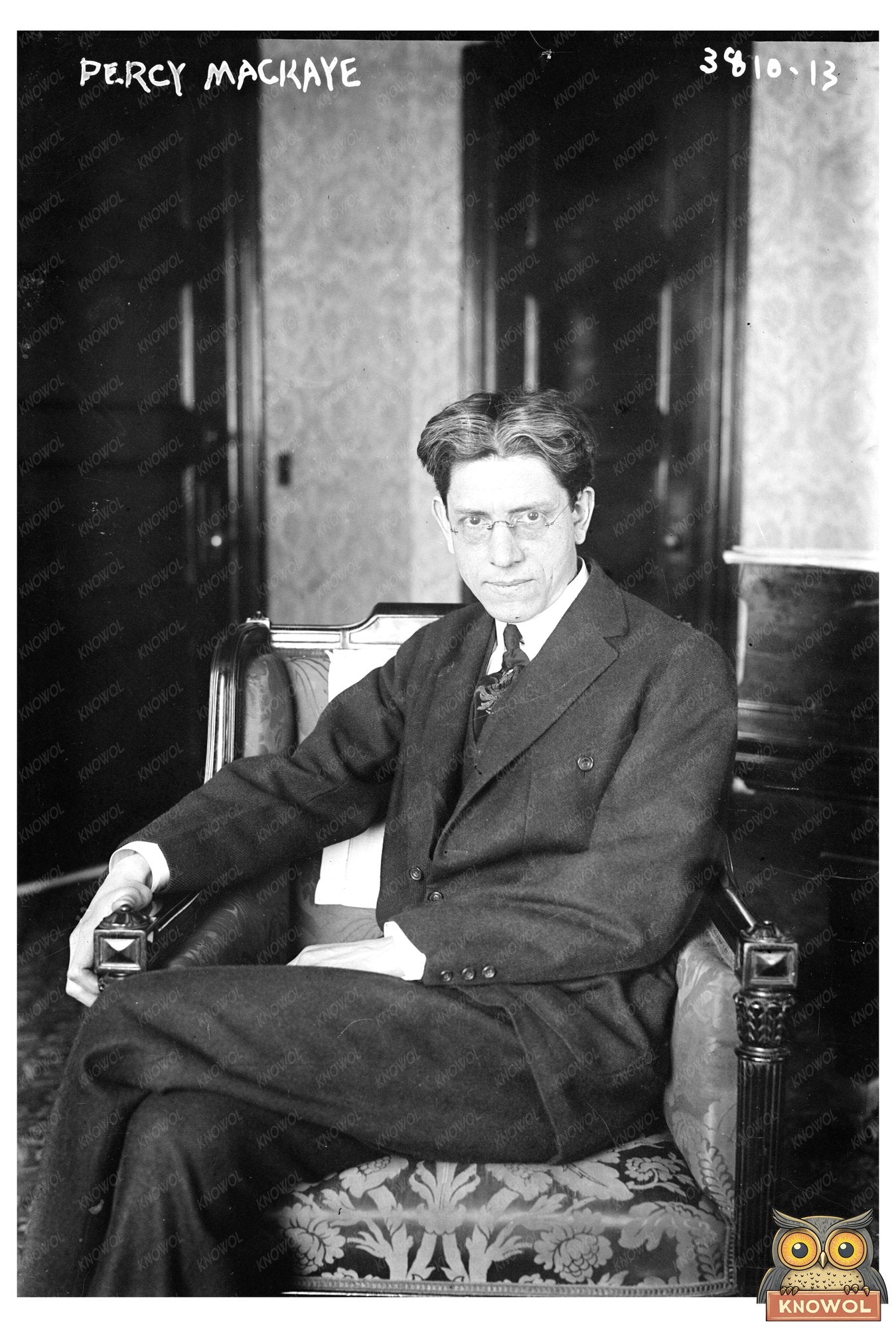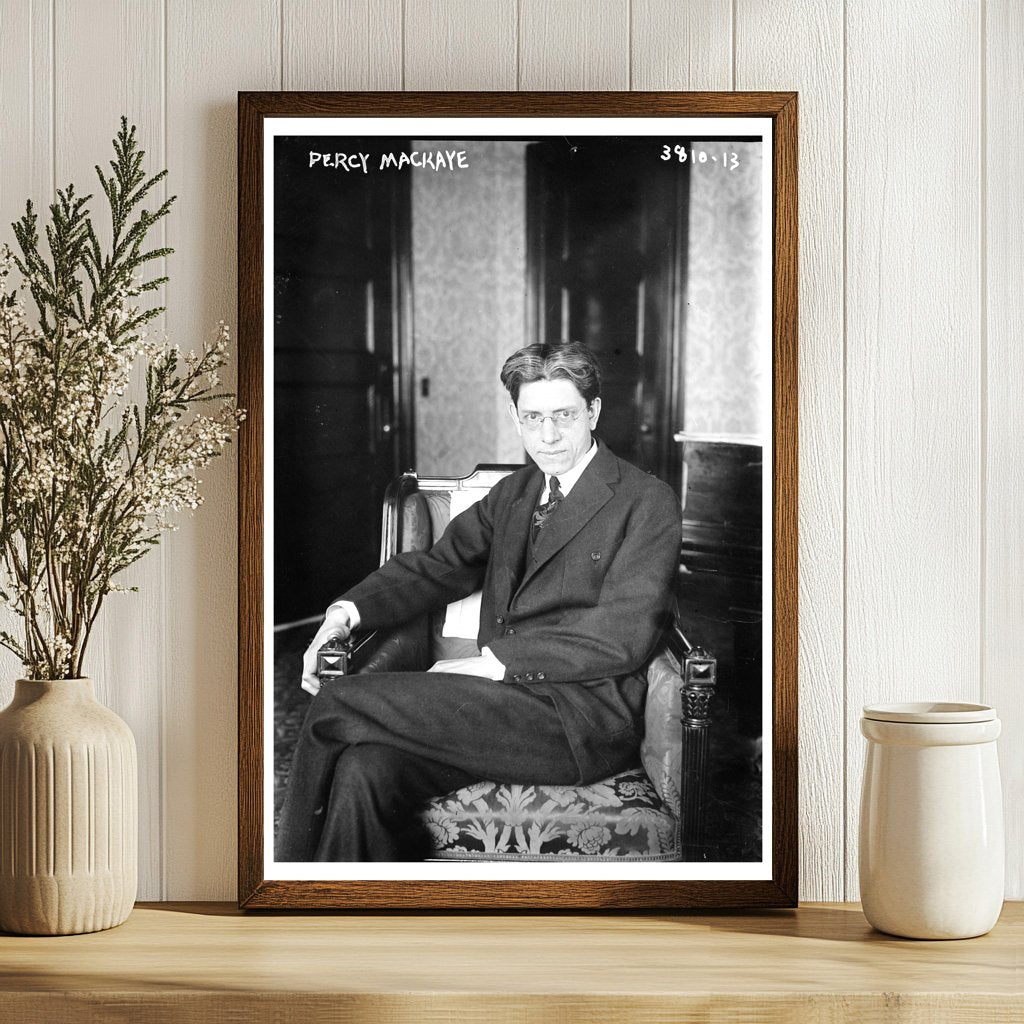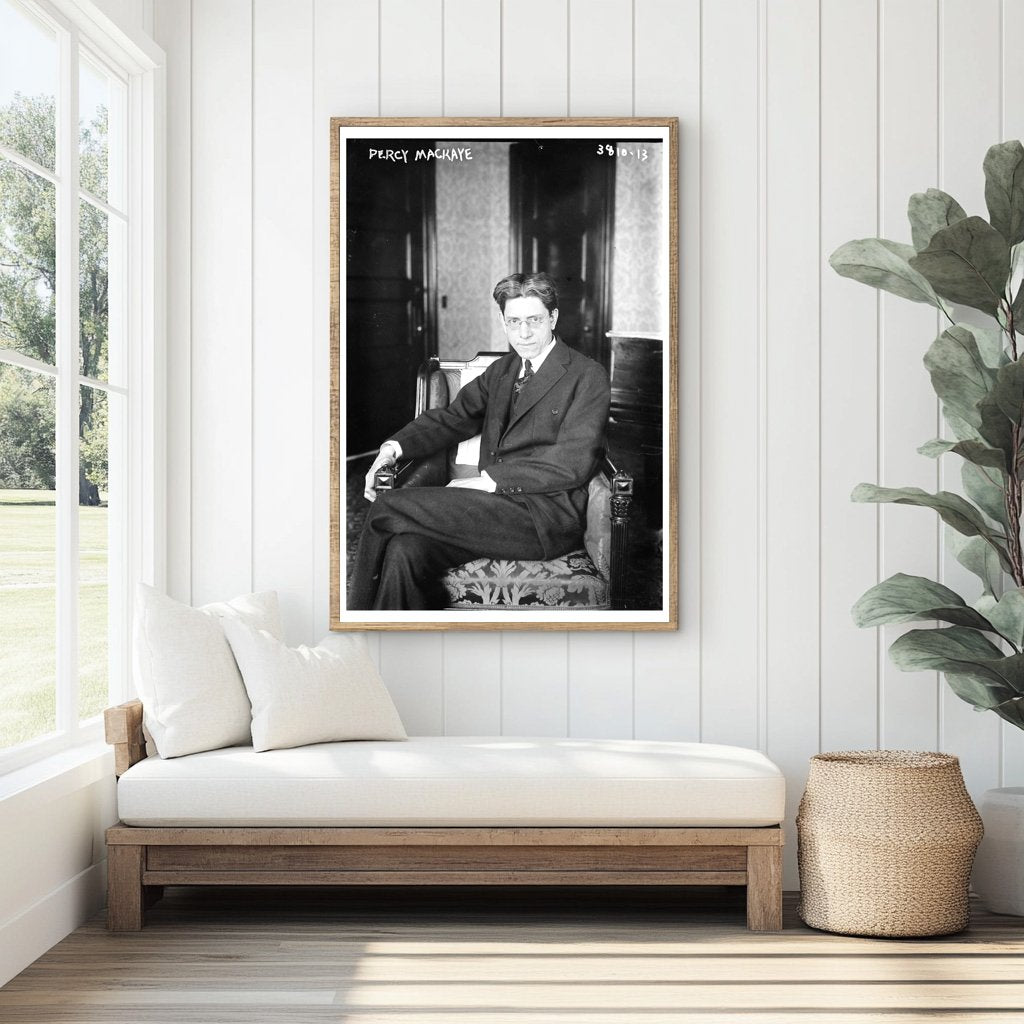


Percy MacKaye: Pioneer of American Community Theater
This historical photograph features Percy MacKaye, an influential American playwright, poet, and advocate for community theater during the early 20th century. Taken between 1915 and 1920 by a photographer from the Bain News Service, this image captures MacKaye in a moment that reflects the era’s burgeoning interest in the arts and social reform. MacKaye’s works often blended dramatic storytelling with themes of nature, history, and the human experience, earning him a notable place in American literature.
MacKaye was not just a playwright; he was also deeply committed to promoting the importance of civic engagement through the arts. He believed that theater could foster community spirit and social change. His plays, such as The Scarecrow (1911) and The Eternal City (1917), often addressed significant societal issues, drawing audiences into a dialogue about their roles within their communities. His involvement in the formation of the Provincetown Playhouse and other theatrical ventures paved the way for modern American theater.
This photograph serves as a visual reminder of the dynamic cultural landscape of the United States in the early 1900s. As MacKaye engaged with his contemporaries, his influence helped shape a new phase of American arts, one that still resonates today. The recording of his likeness in this striking image provides a glimpse into the life of a man dedicated to enriching the fabric of American theater and influencing generations to come.

Percy MacKaye: Pioneer of American Community Theater
